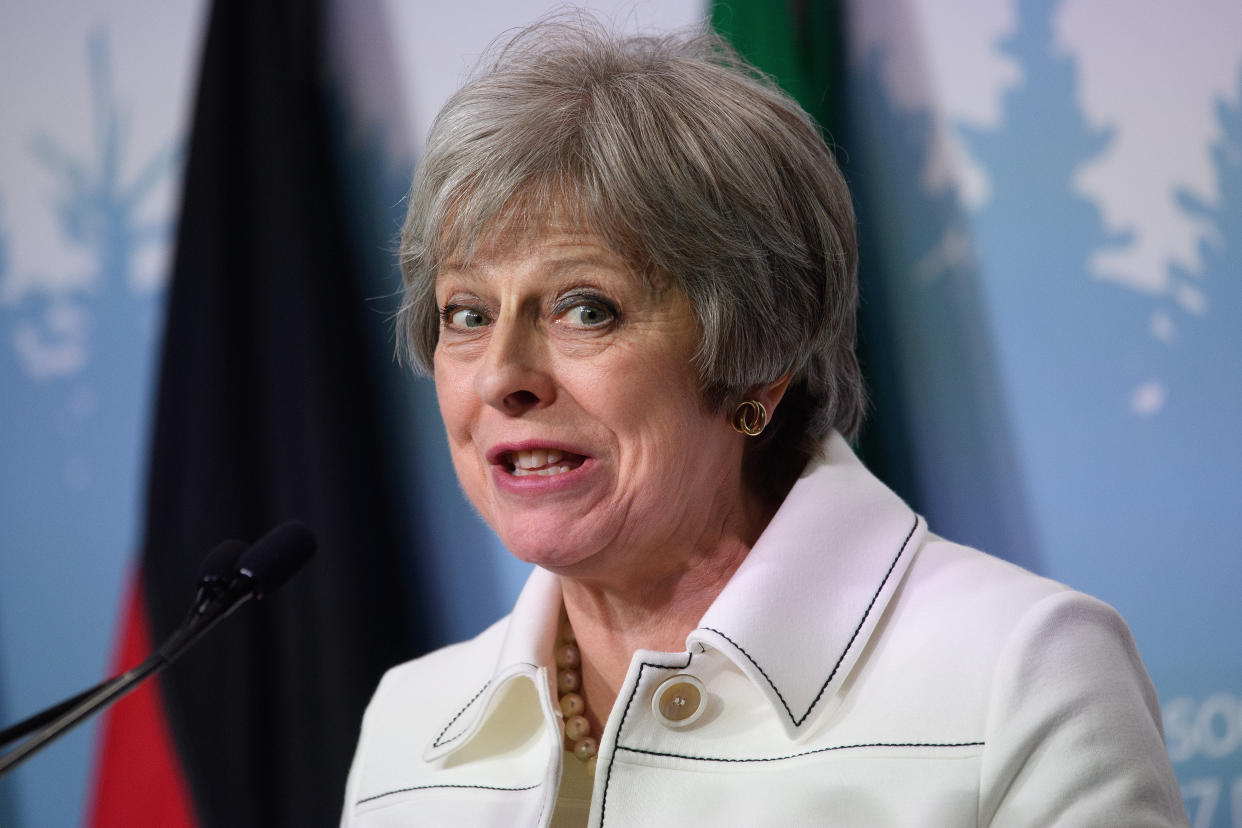Theresa May's Brexit truce close to collapse as Government back-pedals on promise to rebels

Theresa May’s compromise offer made yesterday to pro-EU rebels in order to avoid a humiliating defeat by MPs is already in crisis, as the Government appeared to pedal back on its promises.
As the EU Withdrawal Bill returned to the Commons on Tuesday, Mrs May’s team scrambled together a last-ditch offer to win over rebels threatening to vote down the Government on the issue of giving Parliament a ‘meaningful vote’ on the final Brexit deal.
The 11th hour concession won over the wayward backbenchers, based on the PM promising to integrate two parts of an amendment tabled by rebel Remainer Dominic Grieve into the Brexit plan.
The Government is understood to have agreed to consider the third part, which would allow MPs to dictate the Government’s next move if the final deal presented to them is rejected.
This represented a major climbdown for Mrs May, who has refused similar demands in the past.
But today a Downing Street spokesman said the government would not be considering the third clause, confirming it is ‘not up for discussion’.
Rebel MPs have made it clear that they are prepared to defeat the government in the future if Mrs May does not live up to her promises.
For avoidance of any doubt the promised further amendment in the Lords must closely reflect Dominic Grieve’s amendment (or Lords likely to bring that forward themselves & for that to be passed)
— Sarah Wollaston MP (@sarahwollaston) June 12, 2018
For the avoidance of doubt the PM said yesterday that clause c of Dominic Grieves amendment would be discussed as part of the new amendment to be tabled in the Lords. If the PM goes back on that there will be no agreed amendment that I can support #sortitplease
— Anna Soubry MP (@Anna_Soubry) June 13, 2018
Significant concessions from the PM on the meaningful vote amendment. Government agreed to integrate part A & B of Dominic Grieve’s amendment to the #EUWithdrawalBill with part C to be discussed asap. Will be tabled in Lords. On this basis, I abstained and await return to Commons pic.twitter.com/cX39Tr4bdh
— Heidi Allen (@heidiallen75) June 12, 2018
Shortly after the compromise was offered yesterday, the Brexit department released a statement that appeared to contradict Mrs May’s assurances.
‘On the meaningful vote we have agreed to look for a compromise when this goes back to the Lords,’ a spokesman said.
‘The Brexit secretary has set out three tests that any new amendment has to meet – not undermining the negotiations, not changing the constitutional role of parliament and government in negotiating international treaties, and respecting the referendum result.
‘We have not, and will not, agree to the House of Commons binding the government’s hands in the negotiations.’
MOST POPULAR TODAY ON YAHOO
Scientists catch great white shark – then another 12ft great white attacks it
The bizarre moment Sylvester Stallone popped up at the Trump-Kim summit
In pictures: Donald Trump’s ‘fantastic’ historic first meeting with Kim Jong-un
David Davis has previously stated that removing the possibility of a ‘no deal’ Brexit would tie his hands in talks with the bloc and reduce the UK’s bargaining power.
Exactly what changes the Prime Minister is adding to the bill will not be clear until it returns to the House of Lords.
And if the changes aren’t satisfactory to the rebels, they will have the opportunity to vote down the Government again when the bill ping-pongs back to the Commons.
Speaking on Newsnight, Mr Grieve said that if Mrs May fails to deliver it would not be ‘the end of the matter’.
‘Ultimately it’s very likely this amendment will come back,’ he said.
A Tory rebel said to PoliticsHome: ‘The position of the Prime Minister was very straightforward. It was indicated to us that the first two parts of the Grieve amendment presented very few problems and could be incorporated into a government amendment. The third part was more difficult, but from the conversation there was a way forward.
‘DexEU can say whatever they want to say, I’m not going to get involved in their internal issues. The blunt reality is that the Government’s difficult position means they say one thing to one group and one thing to another.
‘The whole purpose of this was to proceed by agreement. If the outcome of our talks with the Prime Minister doesn’t get delivered, the Grieve amendment will come back, and it’s pretty clear where the numbers are.’

 Yahoo News
Yahoo News 

